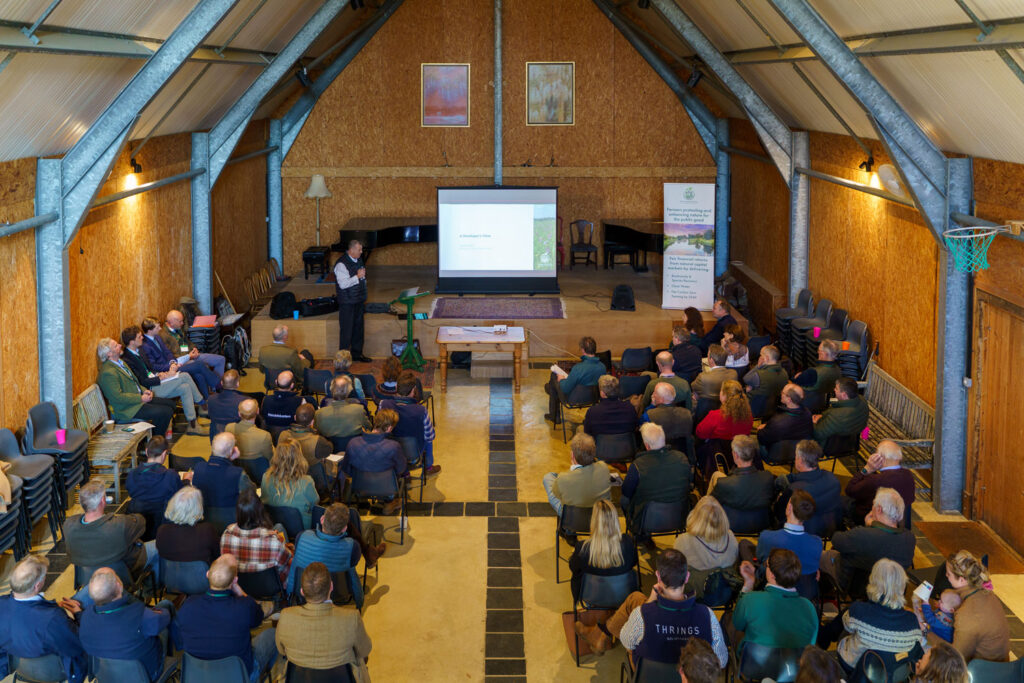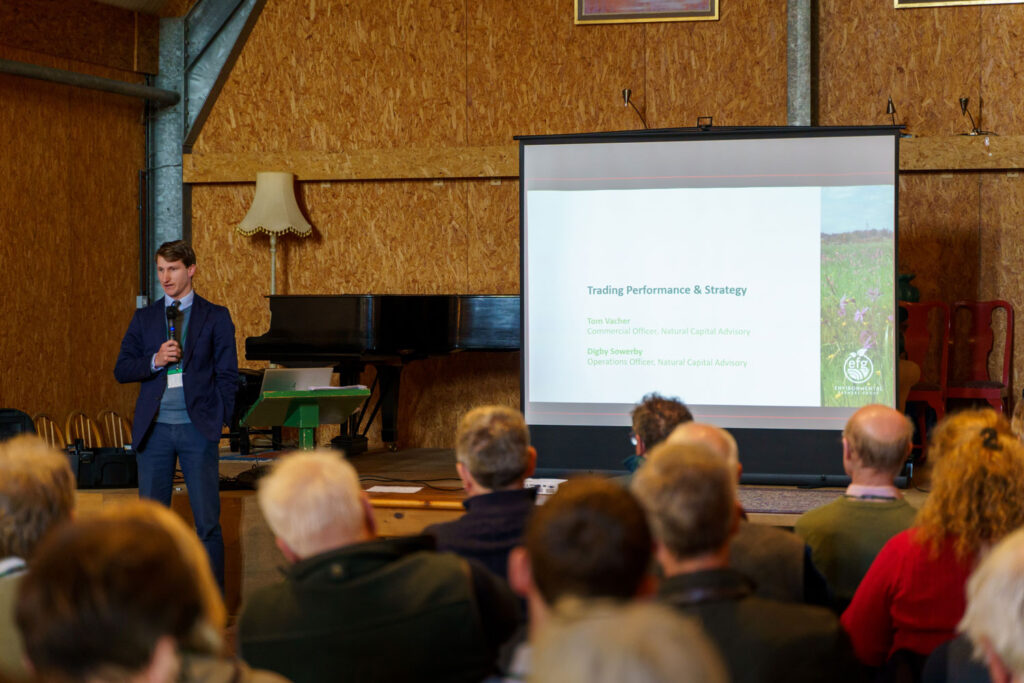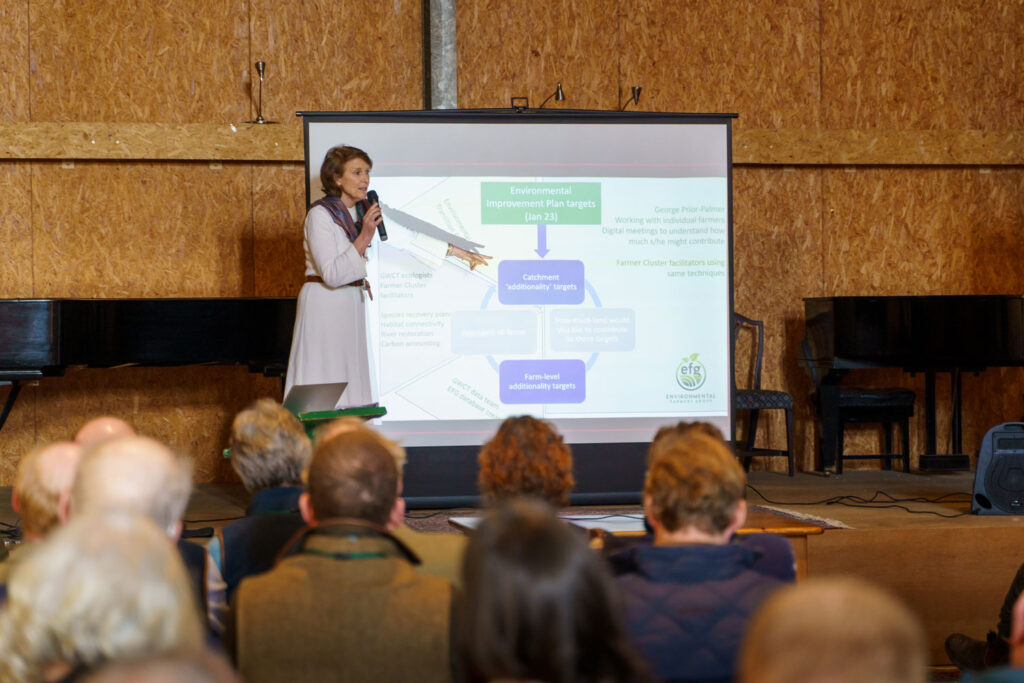Glorious sunshine welcomed over 70 farmers to Upper Cranbourne Farm, near Winchester, on 6 February for our first National AGM. EFG Chairman Rob Shepherd kicked off the meeting with an update on the progress made by the group over the past year, whilst also setting out ambitions for the year ahead and a strategy for the future.

EFG Commercial Director Christopher Sparrow gave a positive financial overview for the group which was followed with a trade summary from Tom Vacher, EFG Commercial Officer, who updated on a strong uptake of trading opportunities in the past month alone.
Membership Director Colin Smart was pleased to update that in the past year membership has risen by nearly 50% with Members and those expressing an interest in joining the group reaching 299,000ha.
The structure of scale has always been a fundamental concept of the EFG model and membership growth is central to widening and strengthening trade opportunities brought forward to EFG, whilst also gaining attention from government. These numbers are set to continue to increase, with Local Officers now in place in Northern Lincolnshire, Test & Itchen and Hampshire Avon, allowing for better farmer engagement at local level whilst also acting as a communication bridge between regional groups and the wider EFG team.


In the ambition to continue to provide members with the most relevant and trusted resource, Digby Sowerby, EFG Operations Officer, was able to provide detail on the launch of the ‘EFG Knowledge Hub’. In collaboration with the GWCT Allerton Project and with funding from the Golden Bottle Trust, this bank of information will bring together a range of movers and shakers in the natural capital and environmental farming space, sharing their knowledge through podcasts, videos, webinars and reading materials, all valuable resources available to members.
Further membership offering will include the roll out of the first EFG Conservation Plan across Hampshire Avon, Test & Itchen, Dorset Stour and Northern Lincs. Teresa Dent CBE, Chief Executive of the GWCT, outlined how these plans can be viewed under different lenses. Firstly, as local conservation plans to improve biodiversity, promote cleaner water and air, and reach net-zero farming by 2040. Secondly, as environmental transition plans that outline how EFG members are meeting and beating the government’s targets within the Environmental Improvement Plan, and thirdly, as an investment prospectus for corporate businesses to understand how EFG’s natural capital supply can meet their needs. The Conservation Plans enable farmers to better understand and benchmark their natural capital, allowing for local conservation strategies that can open up strong trading opportunities.
Following this, the meeting then concluded with a vote on the first amendment to EFG’s Membership Agreement regarding surplus redistribution. Thanks to strong financial performance, EFG will be redistributing income to Members.
EFG continues to support UK farmers in navigating government changes to be able to deliver environmental change at scale whilst earning fair financial reward. The AGM was a brilliant occasion to get members together to reflect on this and to give feedback on how the group can best function for their needs. We thank our hosts for such a wonderful venue and our caterers for such a brilliant feed!
